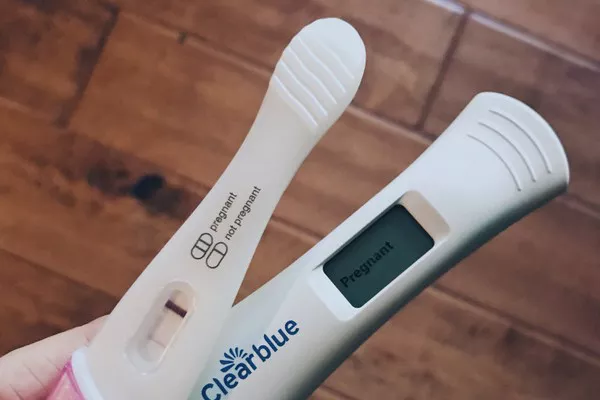A recent cross-sectional study examining over 70 million hospital maternity admissions in the United States spanning from 1998 to 2018 has identified a significant 16-fold increase in the prevalence of hepatitis C virus (HCV) infections during pregnancy. This surge in infections has been directly linked to the ongoing opioid epidemic, shedding light on the intricate relationship between the two health crises.
The research sought to address the limited available data on HCV infections during pregnancy and to reconcile conflicting reports regarding the impact of HCV on maternal and perinatal outcomes. Lead author of the study, Dr. Po-Hung Chen, MD, PhD, from the Division of Gastroenterology & Hepatology at the Johns Hopkins University School of Medicine in Baltimore, Maryland, explained the urgency of their findings. “Given increasing HCV infections among women of childbearing age, the risk of vertical HCV transmission, and potential pregnancy-related adverse events, clinicians and policy makers need a heightened understanding of HCV infection during pregnancies and its implications on outcomes,” stated Dr. Chen and his colleagues.
The researchers sourced their data from hospital admissions culminating in childbirth, stillbirth, or spontaneous abortion, utilizing the National Inpatient Sample, the largest publicly accessible all-payer inpatient care database in the United States. Within this extensive cohort, 137,259 cases (0.20%; 95% CI, 0.19%-0.21%) tested positive for HCV.
Over the 21-year study period, the prevalence of maternal HCV infections surged by a staggering 16-fold, climbing from 0.34 (95% CI, 0.26-0.41) per 1000 pregnancies in 1998 to a concerning 5.3% (95% CI, 4.9-5.7) in 2018. This upward trend affected all age groups, with the most significant increase, a 31-fold rise, occurring among women aged 21 to 30 years. Importantly, it is worth noting that universal HCV screening in pregnancy was only recommended in 2018, potentially leading to an underestimation of HCV prevalence in earlier years.
Dr. Chen and his team observed a parallel rise in the proportion of HCV-positive pregnancies with the escalating rates of opioid use, particularly among women aged 21 to 30 years, coinciding with the “second wave” of the opioid epidemic between 2010 and 2013. They emphasized that the transmission of bloodborne HCV infections was predominantly driven by injection drug use, with acute HCV cases tripling between 2010 and 2015.
“HCV infection among women of reproductive age has steadily increased over the past 2 decades in parallel with the opioid epidemic,” Dr. Chen stated during discussions of the study. “Universal HCV screening with each pregnancy makes sense. Devoting more public health resources to address the opioid epidemic also probably makes sense, even though our methodology technically could not establish the cause-effect relationship.”
The study scrutinized various adverse events in both HCV-positive and -negative groups, including complications like anemia, gestational diabetes, hypertension during pregnancy, and thyroid dysfunction during pregnancy. Perinatal outcomes examined encompassed cesarean deliveries, stillbirths, spontaneous abortions, preterm labor, poor fetal growth, fetal distress, and premature rupture of membranes.
The findings indicated that HCV-positive pregnancies were associated with an increased risk of several adverse maternal and perinatal outcomes, including gestational hypertension (adjusted odds ratio [AOR], 1.08; 95% CI, 1.03-1.14), cesarean deliveries (aOR, 1.19; 95% CI, 1.15-1.22), preterm labor (aOR, 1.10; 95% CI, 1.05-1.14), poor fetal growth (aOR, 1.29; 95% CI, 1.21-1.37), and fetal distress (aOR, 1.11; 95% CI, 1.08-1.15). However, the risk of spontaneous abortion was lower (aOR, 0.88; 95% CI, 0.82-0.95), which the investigators suggested might be more likely due to genetic anomalies.
Dr. Chen concluded that these findings support recent recommendations for universal HCV screening during pregnancy and emphasize the need for improved access to multidisciplinary care for women affected by HCV. “Given the recency of the CDC and ACOG’s [American College of Obstetricians and Gynecologists] endorsements for universal antepartum HCV screening—2020 and 2021, respectively—I believe that increasing awareness among frontline providers, i.e., obstetrics practices, is an essential first step,” Dr. Chen stated. “Johns Hopkins obstetricians have fully adopted the practice and refer women who screen positive for HCV to hepatology or infectious disease specialists for treatment.”


